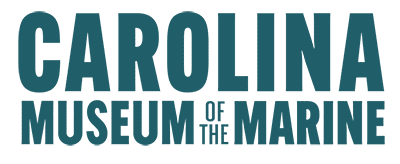Principles and Traits of Marine Corps Leadership, Part 8

Upon hearing the Marine leadership principle of making sound and timely decisions, one might reasonably respond, “Right, but how?” We get a sense of how to understand what it means to take decisions that are “sound” from the description of this principle, and we find, interestingly, that demonstrating this leadership principle seems to be rather a consequence of particular traits of character.
_”Marines must be able to think and make quality decisions under pressure. Sadly, these decisions (or lack of initiative) can lead to the loss of life or other forms of devastation. Therefore, Marines as leaders must be able not only to make decisions but live with the consequences. Marines who understand the core leadership principles and values of the USMC are great improvisers. They are able to react and respond to unforeseen events and find solutions. Leaders know that things rarely go to plan, especially in the military where being able to adapt and remain flexible is imperative. Marines that can estimate a situation, along with the plausible outcomes, and then make a sound decision, make good leaders.”
A cursory reading of this description might leave one thinking there isn’t much here since we don’t find a dictionary definition of a sound decision. However, we get hints when reading that a leader must be able both to take decisions and to live with the consequences, that a leader must be able to respond to situations that have arisen unforeseen, in other words to be flexible and able to adapt, and importantly, a leader must be able to estimate, or evaluate a situation in order to decide the best way to respond. And of course, this must be done consistently.
It is one thing to understand the definition or description of a principle of conduct. It is something else to put the principle into action in one’s behavior. The practice of acting according to principle requires that one understands the importance of following principles that guide action and that one do so with attention and care, that is, with discipline. For centuries, moral philosophers have understood that when people guide their conduct according to proven principles of right behavior, they develop habits of action by which they demonstrate principles in action without having consciously to think about them. These habits traditionally have been called virtues and have long been thought to be important elements in lives well lived.
Leaders must be able to live with the consequences of their decisions. This involves having right intentions, which is an aspect of honor. In the 13th century, Dominican philosopher Thomas Aquinas argued that in order to be able accurately to evaluate the morality of an act, one must know three things: the act itself, the circumstances in which the act was performed, and the intention of the actor. This is seen, for example, in the distinction between sincerely being in error and lying. If one believes that what he is saying is true when it isn’t, he’s mistaken, but when he knows what he is saying is not true, then his intention is to deceive. That fellow is lying. Toward the end of the American Declaration of Independence we read in part: “We, therefore, the Representatives of the united States of America, in General Congress, Assembled, appealing to the Supreme Judge of the World for the Rectitude of our Intentions,…” Having right intentions is central to a clear conscience which in turn is fundamental to accepting and living with the consequences of our actions.
Right intentions are important, but we must be aware also of other traits of character that are needed by a conscientious leader like judgment, justice, decisiveness, integrity (by which right intentions are the only kind acceptable), dependability, and initiative. Such a leader will seek ever better to know himself and to pursue self-improvement, and will develop his skills, which may be called technical and tactical proficiency, will know his people and keep them informed, and in this way, set the example. For we humans, the possibility of making a mistake is ever present and we are prudent to keep this in mind. If, however, one is conscientious and disciplined, seeking to understand himself and develop into an ever-better human being, seeking also to be the best he can be at all aspects of his work, and possessed always of right intention, then should such a leader make a mistake, he is well-placed to be able to understand and to live with the consequences, and this is one place where courage and commitment are demonstrated.
The leadership trait of endurance is understood to be the ability to work consistently under challenging circumstances, and especially, over time. Ways of improving endurance include exercise to improve strength and stamina, maintaining healthy daily routines, and seeing challenges as opportunities to learn and to grow.

The Cambridge English Dictionary describes endurance as the ability to do things that are difficult, unpleasant, or painful over time. We might think of the capacity for tolerating necessary unpleasantness. When we consider the possibility of suffering when not in physical pain, endurance may be required when challenges are intellectual or emotional without involving physical danger. Yet we normally think of endurance as a quality of physical strength. Marines train for war, and in this training, physical conditioning and strength are important. Marines are also men and women, like the rest of our countrymen, and here also, among the populace in general, physical strength and good conditioning are important. We have presently in our society a problem with people suffering from poor conditioning and excess weight. Here, as elsewhere in life, the principles and traits of Marine Corps leadership, when practiced, make people better at being human, and therefore improve life.
At the Al Gray Marine Leadership Forum at Carolina Museum of the Marine, we seek to describe the qualities and skills of leadership to Americans in general. In this, we recognize the discipline of leading others, and also the discipline of leading self. Leadership of self includes ethics and developing disciplined minds and bodies. There is a saying among people in the fitness occupation that abdominal muscles are made in the kitchen.
What is meant by this is that while it is possible to develop strong abdominal muscles through exercise, if one’s diet is unhealthy or excessive, the muscles can be hidden under layers of excess weight. Hence another fitness proverb: you can’t out-train a bad diet.
Maintaining a life of fitness of body can be done in numerous ways, but they all require discipline and endurance. This is true also in bringing discipline to the mind. If we acknowledge that there are foods for the body that nourish us, and others that are not healthy for us, the same is true of the mind. What we put into our minds, and what we spend time thinking about, matters to our overall health and happiness. An important indicator of fitness of mind is attention span. Short attention spans are produced by insufficient intellectual exercises that demand of us disciplined focus of mind. Just as our bodies can do ever more things when exercised regularly, so with our minds. The more exercise we give them, the more they can do, that is, the more they can understand. In physical exercise, resistance training using weights is particularly good for people able to do it, and for intellectual training, it is particularly important to read. Conversation is important, certainly, but it is well understood that people who attend to increasing their personal store of knowledge are increasingly better suited to participating in fruitful conversation. In reading, the reader encounters a piece of writing in which the purpose is to draw from the text the meaning put there by the author. The reader cannot put clarifying questions to the author as can be done in conversation, and so it is the reader alone with the text, and this imposes an intellectual discipline of focus and thought that is unique to reading.
The suppleness of mind one develops through reading and conversation has benefits that take us back to the leadership principle of taking sound and timely decisions since the more agile one’s mind, the more rapidly and precisely one can size up a situation and choose a course of action that is suited to the challenge. Decisions concerning actions that suit the needs of the situation are sound decisions, and we can prepare this ability through the endurance required to train both body and mind.


